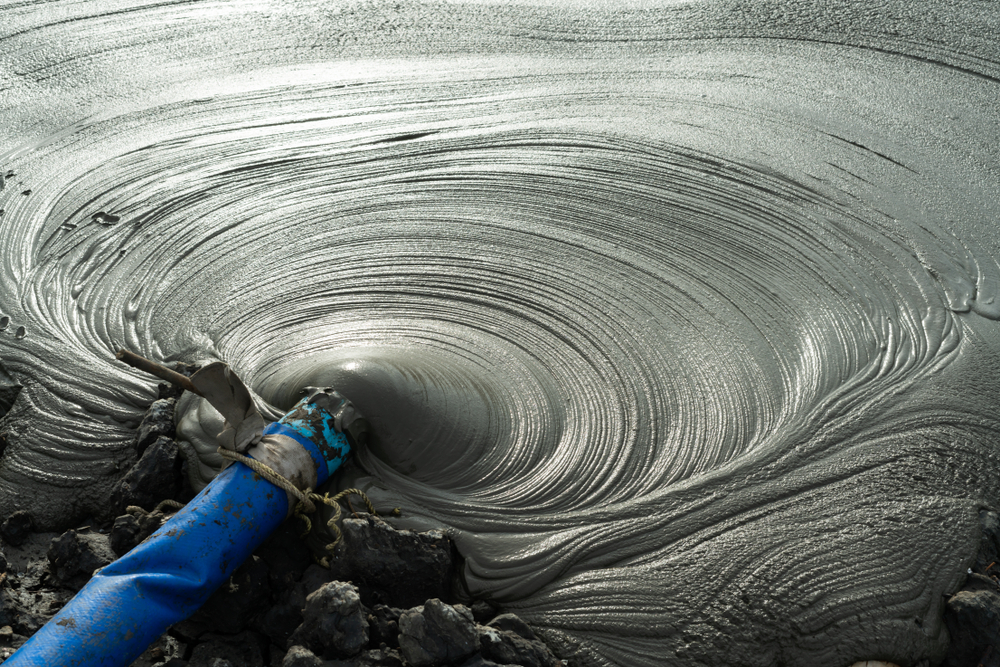API RP 13B-1 Standard Procedures for Drilling Fluid Testing
The API Recommended Practice (RP) 13B-1 provides a comprehensive framework for testing and evaluating drilling fluids, also known as muds, in the oil and gas industry. This standard is critical for ensuring that drilling fluid systems meet performance criteria necessary to protect well integrity, optimize drilling efficiency, and enhance operational safety. The API RP 13B-1 encompasses all aspects of drilling fluid evaluation, from initial formulation through on-site testing during drilling operations.
Drilling fluids play a crucial role in the oil and gas exploration process by providing several functions: they circulate to cool and lubricate the drill bit; carry cuttings out of the borehole; balance formation pressure; stabilize the wellbore; and prevent hydrocarbon migration. The quality of these fluids is paramount, as substandard muds can lead to costly delays, equipment failures, and safety hazards.
API RP 13B-1 guides laboratories in performing a series of tests that ensure drilling fluids meet specified performance criteria. This includes testing for rheological properties (viscosity, yield point), fluid loss, filtration control, temperature stability, and chemical compatibility with formation rocks. The standard also addresses the testing of additives such as bentonite, weighting agents, biocides, and other materials commonly used in mud formulations.
The API RP 13B-1 is a valuable resource for quality managers, compliance officers, R&D engineers, and procurement personnel involved in the oil and gas sector. It ensures that drilling fluids are tested according to recognized industry standards, thereby facilitating consistent performance across various operational environments.
One of the key aspects of API RP 13B-1 is its emphasis on reproducibility and comparability of test results. Laboratories must adhere strictly to the specified procedures to ensure accurate and reliable data. This includes precise sample preparation, standard testing methods, and appropriate calibration of equipment.
The standard also highlights the importance of understanding the specific requirements of different drilling operations. For instance, offshore drilling typically involves high-temperature, high-pressure conditions that require muds with exceptional thermal stability and resistance to degradation. Onshore operations may have different challenges, such as dealing with varying formation pressures or ensuring biocide efficacy in water-based muds.
API RP 13B-1 is continuously updated to reflect the latest advancements in drilling fluid technology and operational practices. This ensures that laboratories remain at the forefront of industry standards, providing clients with up-to-date testing services.
Scope and Methodology
The scope of API RP 13B-1 encompasses a wide range of tests designed to evaluate drilling fluids for their suitability in various operational scenarios. The methodology involves several key procedures that are essential for comprehensive evaluation:
| Test Procedure | Description |
|---|---|
| Rheological Properties | Determine viscosity and yield point to ensure fluid can flow properly in the borehole. |
| Fluid Loss | Monitor how much water is lost from the mud under pressure, ensuring it remains stable. |
| Filtration Control | Evaluate the filtration properties to prevent excessive loss of solids and maintain wellbore stability. |
| Temperature Stability | Determine how well the fluid resists degradation at high temperatures, which is crucial for offshore drilling. |
| Chemical Compatibility | Assess the compatibility of additives with formation rocks and other components to prevent adverse reactions. |
The API RP 13B-1 also includes specific protocols for testing additives such as bentonite, weighting agents, biocides, and lubricants. These tests ensure that each component contributes positively to the overall performance of the drilling fluid without causing operational issues.
In addition to these physical properties, API RP 13B-1 also addresses chemical compatibility testing. This involves assessing how different additives interact with one another and with formation rocks to prevent potential chemical reactions that could compromise mud stability or lead to equipment failures.
Eurolab Advantages
At Eurolab, we pride ourselves on providing unparalleled service in API RP 13B-1 compliant testing for drilling fluids. Our advantages are numerous and include:
- Expertise: Our team of experienced professionals ensures that all tests adhere strictly to the latest standards.
- State-of-the-art Facilities: Equipped with advanced instrumentation and calibration tools, we can provide precise and reliable test results.
- Comprehensive Reporting: Our reports are detailed and include recommendations for optimizing mud performance based on our findings.
- Custom Solutions: We tailor our testing services to meet the specific needs of each client, ensuring that they receive the most relevant and useful information.
- Consistency: With a commitment to quality assurance, we maintain consistent results across all tests performed in our laboratory.
- Timely Delivery: Our efficient processes ensure that clients receive their reports promptly, minimizing downtime for drilling operations.
Our commitment to excellence and adherence to international standards positions Eurolab as a leader in oil and gas testing services. We are dedicated to helping our clients make informed decisions about their drilling fluids, ensuring the highest levels of safety and efficiency in their operations.
International Acceptance and Recognition
The API RP 13B-1 is widely recognized and accepted internationally as a benchmark for testing drilling fluids. Its acceptance spans across various regions and countries, making it an essential standard for the oil and gas industry worldwide.
- USA: The United States Department of Energy (DOE) mandates compliance with API RP 13B-1 for all offshore drilling operations.
- Canada: Canadian regulatory bodies require laboratories conducting mud testing to follow the guidelines set forth in API RP 13B-1.
- United Kingdom: The Health and Safety Executive (HSE) recommends compliance with this standard for all onshore and offshore drilling activities.
- Norway: Norway’s Petroleum Directorate references API RP 13B-1 in its regulations governing exploration and production of oil and gas resources.
- Netherlands: The Dutch Ministry of Economic Affairs requires compliance with this standard for all international operations involving Dutch drilling contractors.
The widespread acceptance of API RP 13B-1 is a testament to its reliability and relevance in the industry. Laboratories that adhere to these standards gain credibility and trust from clients, regulatory bodies, and other stakeholders.





